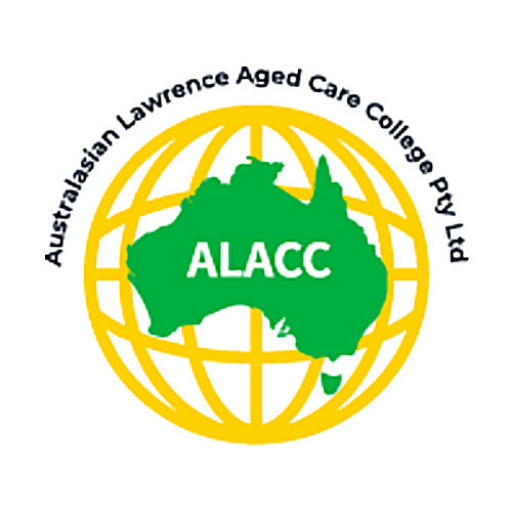Photos of university / #oxford_uni
The DPhil in Pharmacology at the University of Oxford offers an exceptional opportunity for highly motivated students to undertake advanced research in the field of drug action, development, and therapy. This doctoral program is designed to cultivate independent research skills, critical thinking, and a comprehensive understanding of pharmacological principles. Students in this program work closely with leading experts in pharmacology, neuroscience, and related disciplines, conducting innovative projects that contribute to the understanding of how drugs interact with biological systems and how these interactions can be harnessed to develop new treatments for a wide range of diseases. The program emphasizes both experimental and theoretical approaches, providing students with a robust training in pharmacological techniques, data analysis, and scientific communication. Candidates are encouraged to explore fields such as molecular pharmacology, neuropharmacology, cardiovascular pharmacology, and translational medicine. The DPhil typically lasts three to four years, during which students are expected to develop and complete an original research project that culminates in a thesis suitable for publication and presentation at international conferences. The program also provides opportunities for interdisciplinary collaboration across departments and institutes within the university, enriching the research experience and broadening career prospects. Graduates of the DPhil in Pharmacology are well-equipped to pursue careers in academia, industry, or healthcare sectors, contributing to advances in medicine and pharmaceutical sciences. The university’s state-of-the-art facilities, comprehensive resources, and vibrant research community ensure that students receive the support and environment necessary for successful scientific inquiry. Admission to the program requires a strong academic background, typically a first-class or very good undergraduate degree in pharmacology, biochemistry, medicine, or related fields, along with a demonstrated research aptitude. Overall, the DPhil in Pharmacology at Oxford offers an outstanding training ground for future leaders in biomedical research, fostering innovation and excellence in understanding drug mechanisms and therapies.
The MSc in Pharmacology at the University of Oxford offers an in-depth exploration of the fundamental principles and contemporary advances in the field of pharmacology. This program is designed to provide students with a comprehensive understanding of how drugs interact with biological systems, the mechanisms underlying drug action, and the development of new therapeutic agents. Throughout the course, students will engage with a curriculum that combines rigorous scientific training with critical thinking skills, preparing them for careers in research, pharmaceutical industries, or further academic study.
The program covers a broad range of topics including molecular pharmacology, neuropharmacology, clinical pharmacology, and the pharmacokinetics and pharmacodynamics of drugs. Students will learn about the design and interpretation of pharmacological experiments, as well as the ethical and regulatory considerations involved in drug development and use. The curriculum is frequently updated to reflect the latest scientific discoveries, ensuring that students gain current and relevant knowledge.
Students will participate in laboratory-based practical sessions that enhance their understanding of experimental techniques and data analysis in pharmacology. They will also have opportunities to attend seminars and lectures delivered by leading experts in the field, facilitating an interactive and engaging learning environment. The program emphasizes independent research skills, enabling students to design and execute their own research projects under faculty supervision.
In addition to coursework, students are encouraged to develop their critical appraisal skills by reading and evaluating scientific literature. They will also learn about the translational aspects of pharmacology, including how laboratory findings can be applied to develop new medical treatments. The program supports professional development through training in scientific communication, teamwork, and project management.
Graduates of the MSc in Pharmacology from Oxford are well-equipped to pursue careers in academia, industry, or healthcare sectors. Some may continue with doctoral research, while others move into pharmaceutical development, regulatory agencies, or clinical practice. The university’s vibrant academic community and strong links with the biotech and pharmaceutical industries provide an excellent environment for professional growth.
Overall, the MSc in Pharmacology at Oxford combines comprehensive scientific training with practical experience and professional development opportunities, aiming to cultivate highly skilled scientists capable of making significant contributions to the advancement of medical science and improving patient care.
Undergraduate and postgraduate programmes in Pharmacology at the University of Oxford typically require students to possess a strong academic background in Sciences, particularly in Biology, Chemistry, and Mathematics. Applicants are expected to demonstrate exceptional academic achievement, with a focus on high grades in relevant subjects during their secondary education or prior university studies. For undergraduate courses such as the Bachelor of Arts in Pharmacology, prospective students generally need to submit UCAS applications, including personal statements, references, and standardized test scores if applicable. A-levels in Chemistry and Biology are often required or highly recommended, with typical offers demanding top grades.
For postgraduate programmes like the MSc in Pharmacology, applicants are usually required to hold an undergraduate degree in a related field such as Medicine, Biomedical Sciences, or Biological Sciences, with a strong academic record. Research experience or relevant professional experience can also enhance application competitiveness. All applicants must meet the English language proficiency requirements, usually demonstrated through tests such as the IELTS or TOEFL, unless they come from an English-speaking country or have completed previous education in English.
In addition to academic criteria, some programmes may require applicants to submit a personal statement outlining their interest, motivation, and career aspirations related to Pharmacology. References from academic or professional contacts are also standard. The university may conduct an interview or request additional documentation to assess the suitability of candidates. For admissions, there are specified deadlines, and applicants must ensure all required materials—including academic transcripts, CVs, and test scores—are submitted on time.
Programme requirements include compulsory coursework, laboratory work, and a research project, designed to develop students' practical skills and theoretical knowledge. For postgraduate research degrees, such as a DPhil (PhD) in Pharmacology, candidates need to propose a research project aligned with the university’s research priorities and secure a supervisor. Funding and scholarships may have additional eligibility criteria, including academic merit and research proposals. Overall, the programme aims to cultivate a deep understanding of pharmacology, preparing students for careers in medical research, pharmaceuticals, or academia.
The financing of the Pharmacology degree programme at the University of Oxford is primarily supported through a combination of funded scholarships, university bursaries, government grants, and personal financial planning by students. The university offers a variety of funding options aimed at both domestic and international students to help cover tuition fees and living expenses throughout the duration of the programme.
Domestic students enrolled in the programme may be eligible for government-supported financial aid, such as student loans, which can be used to cover tuition fees or living costs. The UK government provides maintenance loans and tuition fee loans that are administered through the Student Loans Company, enabling students to spread the cost of their studies over a period of time. Additionally, the university offers its own bursaries and fee waiver schemes to assist students demonstrating financial need. These bursaries do not need to be repaid and are awarded based on merit or financial circumstances.
International students pursuing the Pharmacology programme are encouraged to explore external funding options, including scholarships and grants offered by their home governments or international organizations. The University of Oxford also provides a limited number of scholarships specifically designated for international students which cover partial or full tuition fees. Scholarship applications usually require a separate application process, including demonstrating academic excellence and financial need.
Students are also advised to consider personal savings, external individual grants, research awards, or sponsorships from their home institutions. Many students may also supplement their income through part-time work, although working hours may be limited due to visa restrictions for international students.
The university provides comprehensive guidance and support services to assist students in identifying and applying for suitable funding sources. The Financial Aid Office at Oxford offers detailed advice on funding applications, eligibility criteria, and deadlines, ensuring students can navigate the complex landscape of educational financing effectively. Overall, while the specific funding packages for the Pharmacology programme are contingent upon individual circumstances and residency status, the university’s extensive financial support system aims to make the programme accessible to academically talented students from diverse financial backgrounds.
Pharmacology at the University of Oxford is a highly regarded program that offers students an in-depth understanding of the mechanisms by which drugs interact with biological systems. The course is designed to provide a comprehensive education in the scientific principles underlying drug action, as well as the application of this knowledge in the development of new therapeutics. Students in the program are exposed to a wide range of topics including molecular pharmacology, neuropharmacology, cardiovascular pharmacology, and the principles of drug design and discovery.
The program typically combines theoretical coursework with practical laboratory training, enabling students to acquire essential experimental skills. Participants may have opportunities to engage in cutting-edge research projects, often collaborating with leading experts in the field. The curriculum emphasizes the importance of understanding both the scientific and clinical aspects of pharmacology, preparing graduates for careers in medical research, pharmaceuticals, healthcare, or further academic study.
Students are also encouraged to develop critical thinking and analytical skills through a variety of assessments, including essays, presentations, and examinations. The program often benefits from the university's extensive resources, including state-of-the-art laboratories and access to a wide network of research faculty.
Graduates of the Pharmacology program at Oxford are well-equipped to contribute to advancements in medicine and healthcare, given their robust training in both fundamental science and its practical applications. The program often boasts a diverse, international student body, fostering a rich academic environment that promotes collaborative learning and innovation. Overall, Oxford’s Pharmacology course aims to cultivate knowledgeable, skilled, and innovative scientists who will advance drug development and improve therapeutic outcomes worldwide.










